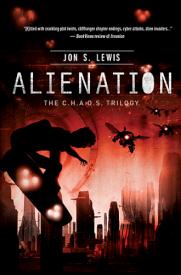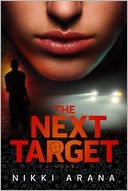Before I get to the review, I want to quick go over what I hope to be my blog posting schedule. The plan is to post something every Monday, Thursday, and Saturday/Sunday. Monday will be short story day, usually based off a prompt from Chuck Wendig. Thursday will be a book review and the weekend will be either a book review or something else related to books or the English language in general. And now to the review:
~~~~~~~~~~~~~~~~~~~~~~~~~~~~~~~~~~~~~~~~~~~~~~~~~~~~~~~~~~~~~~~~~~~~~~~~~~
When I che cked my email one morning and saw that I won this book from the Goodreads First Reads program, I immediately got excited. As the days went on before I received the book, that excitement turned to dread. Another diet book, I thought. Yippee. I figured I would read it anyway. After all, I got it for free; I might as well put in a bit of effort and go through the whole thing. As usual, I scanned the back cover and chapter titles as soon as I pulled it out of the packaging. A realization jumped at me:
cked my email one morning and saw that I won this book from the Goodreads First Reads program, I immediately got excited. As the days went on before I received the book, that excitement turned to dread. Another diet book, I thought. Yippee. I figured I would read it anyway. After all, I got it for free; I might as well put in a bit of effort and go through the whole thing. As usual, I scanned the back cover and chapter titles as soon as I pulled it out of the packaging. A realization jumped at me:
This is not a diet book.
That’s right. This is not one of those books. You know the ones – they tell you to eat and do things that sound crazy. They want you to do something like “Eat only cauliflower and plain chicken for a month and watch the pounds melt away,” or other things that seem impossible for normal people. I know those kinds of crazy diets work for some people. I always assume those people have 9-5 jobs and don’t have to cook for other people ever. Also that they have no taste buds or joy in life. (Those assumptions are probably blatantly not true, but it’s what I generally think). Working retail doesn’t always offer regular hours that stay the same week to week, which makes it difficult to stick to one of the schedules usually mandated by the stricter diets. However, this is not one of those books anyway, so that doesn’t matter right now.
This book is full of weight-loss success stories from normal people. How We Did It shows over two dozen changed lives and almost as many programs and diets. Each person tells his or her stories through interviews with the author. After the success story, each person gets the opportunity to thank those who helped them reach their goals, followed by their own little tips for the reader. Kennedy then offers a quote from a book or other media related to the program under discussion and a brief analysis. One of my favorite parts is the checklist at the end of each story: “This plan might work for me because…” with a short list of things the reader is looking for or thinks he can handle that would work well with the program.
The first featured story talks about SparkPeople. I never heard of this website before reading this book. I signed up two days ago. It’s not a specific program; rather, it provides lots of tools and support. I haven’t explored it very much yet, but it certainly has me intrigued. It’s a free website (which is one reason I chose to look into it). I also plan to purchase the book Thin Within based on the description in chapter 6. It’s a Christian approach to weight loss that looks at weight in light of a relationship with God.
How We Did It features specific diets (Atkins, South Beach, Zone, Nutrisystem, and Jenny Craig), do-it-yourself tools (SparkPeople, calorie-counting, personal trainers), support groups (Weight Watchers, Overeaters Anonymous, Recovery from Food Addiction, and the Duke Diet &Fitness Center), surgeries, and other programs (the Pritikin Program, First Place 4 Health, 3D, Body-for-Life, Curves, and the Ornish Program).
I cannot recommend this book enough to anyone curious about different weight-loss (and weight-loss-maintenance) methods. Kennedy does a great job presenting each of the featured options in an equal light, allowing the reader to decide what works best in his individual situation.


